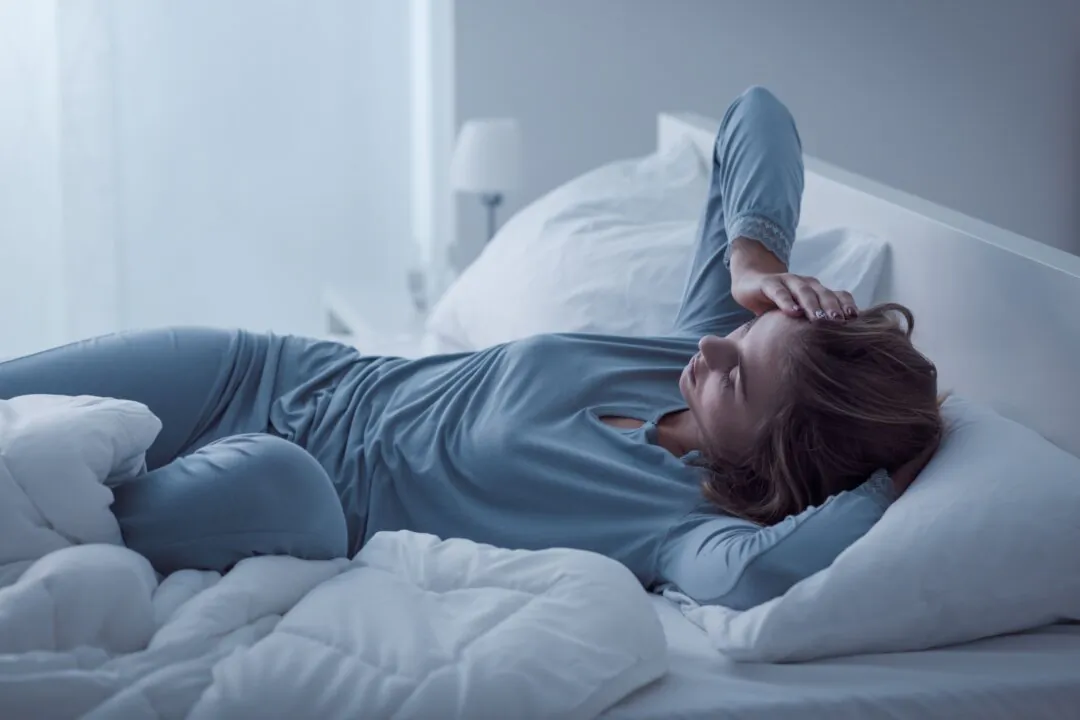If you’re having trouble sleeping, what you had for dinner or that late-night snack may hold a clue as to why.
A systematic review of 23 reports published in January 2024 found that the Mediterranean diet might be the best one for healthy sleep. Still, the findings may be due to much simpler reasons than a specific popular way of eating. The researchers concluded many factors are at play, including the overall healthy lifestyle that those who follow a Mediterranean diet tend to lead.
One factor, however, is a constant: The proper Mediterranean diet is notably void of refined sugar.
Sleep and blood sugar levels are intimately linked. There is a small amount of glucose in the blood at all times, and the brain regulates its level around the clock. When blood sugar levels get too high or too low, it can lead to disrupted sleep. Is it a coincidence that the Mediterranean diet is low in simple sugars and processed foods and is believed to be the best for sleep quality? Probably not.
How Sugar and Sleep Are Connected
A diet rich in refined carbohydrates and sugar can negatively affect your night’s sleep in multiple ways. A high intake of sugar throughout the day or before bed leads to high levels of glucose in the blood. Since what goes up must come down, a spike in blood sugar levels will lead to an inevitable crash. If this crash happens while you are asleep, fluctuations in hormones such as insulin and cortisol that are working to bring your blood sugar back to balance can wake you up and disrupt your sleep patterns.
It’s not uncommon for blood sugar levels to drop while sleeping, particularly if you consume sugar or a large amount of carbohydrates right before bed. This is because your body continues to use glucose while you sleep, but you’re not eating or drinking to replenish those glucose levels. If your blood sugar levels drop too low while you’re sleeping, it can cause nocturnal hypoglycemia, which can be dangerous if left untreated.
3 Ways Sugar Can Affect Your Sleep
A peer-reviewed cross-sectional study on patients with Type 2 diabetes concluded that, in general, those with higher blood sugar levels experience poor sleep. A separate study found that 62 percent of adults with blood sugar levels in the prediabetes range also experience poor sleep.
However, even if you aren’t officially diagnosed with diabetes or any blood sugar dysregulation, simply having an elevated level of glucose in your blood when your head hits the pillow may cause sleep issues. Low blood sugar, or hypoglycemia, can occur in individuals with or without diabetes. The higher your intake of sugar and refined carbs, the more likely you are to experience a spike and subsequent drop in blood sugar.
Julie Pace, a registered functional dietitian nutritionist and the owner of Core Nutrition Health and Wellness, told The Epoch Times in an email: “When and what you have for your evening meal can significantly impact both your blood sugar levels and the quality of your sleep. Consuming foods rich in sugar and refined carbohydrates can cause abrupt fluctuations in blood sugar levels.
“Elevated blood sugar, for instance, can disrupt sleep by prompting heightened alertness, increased urination, and sensations of thirst and discomfort. Similarly, a sudden drop in blood sugar can trigger the release of stress hormones like cortisol and adrenaline, disrupting the body’s ability to relax and fall asleep.”
There are three factors to consider keeping an eye on if you suspect your sugar intake is affecting your sleep:
1. Frequent Urination
Fluctuations in blood sugar levels can affect how often you need to urinate. High blood sugar levels can cause an increase in urine production, leading to more frequent urination. And low blood sugar levels can cause a decrease in urine production, leading to infrequent urination.
“When blood sugar is too high, the kidneys work harder to remove excess sugar, leading to more frequent urination,” Ms. Pace said.
2. Night Sweats
Blood sugar levels can affect body temperature in a few ways. When blood sugar levels are high, the increased loss of fluids through urine can lead to dehydration. Dehydration can make it more difficult for the body to regulate its temperature and can cause body temperature to rise.
In contrast, when blood sugar levels are low, the body can shiver and generate heat to maintain its core temperature. To compensate for a drop in blood sugar levels, the body produces adrenaline, which causes blood vessels to narrow and sweat glands to activate. This can result in clammy and sweaty skin in the middle of the night. Additionally, fluctuations in blood sugar levels can affect blood flow and circulation, affecting body temperature.
“High blood sugar speeds up metabolism and alters blood vessel function, potentially increasing body temperature,” Ms. Pace said. “Conversely, low blood sugar may reduce heat production, making you feel colder.”
3. Vivid Dreaming
More research is needed to understand the relationship between blood sugar levels and dreams. However, there is evidence of a link between a drop in blood sugar and vivid dreaming. Blood sugar dips while you are asleep are linked to nightmares and crying out in the middle of the night without recollection. A clinical case report published in 2019 found that a patient with Type 2 diabetes who was displaying abnormal sleep behavior due to hypoglycemia saw a halt in the episodes after an adjustment of his insulin dosage. Additionally, research supports that bad dreams in those with Type 2 diabetes are associated with poor glycemic control.
How to Balance Your Blood Sugar Before Bed
If blood sugar dips keep you up at night, a simple snack with the right balance of macronutrients before bed can help you sleep more soundly. Snacks that are low in carbohydrates and high in protein can help ensure a good night’s sleep. High carbohydrate intake is associated with significantly lower sleep quality.
“When choosing a bedtime snack to help regulate blood sugar, try apple slices with peanut butter, hummus with raw celery or carrots, or try avocado slices with hemp seeds on whole wheat toast,” Ms. Pace said.
Waking up at certain times of the night, frequent urination, temperature fluctuations, and vivid dreams can all indicate your blood sugar may be off. To prevent blood sugar drops and spikes while you’re sleeping, it’s helpful to consistently eat a balanced diet that is low in refined sugar. If you’re experiencing frequent blood sugar fluctuations while awake or asleep, it’s important to speak with your health care provider to develop a plan to manage your blood sugar levels.



